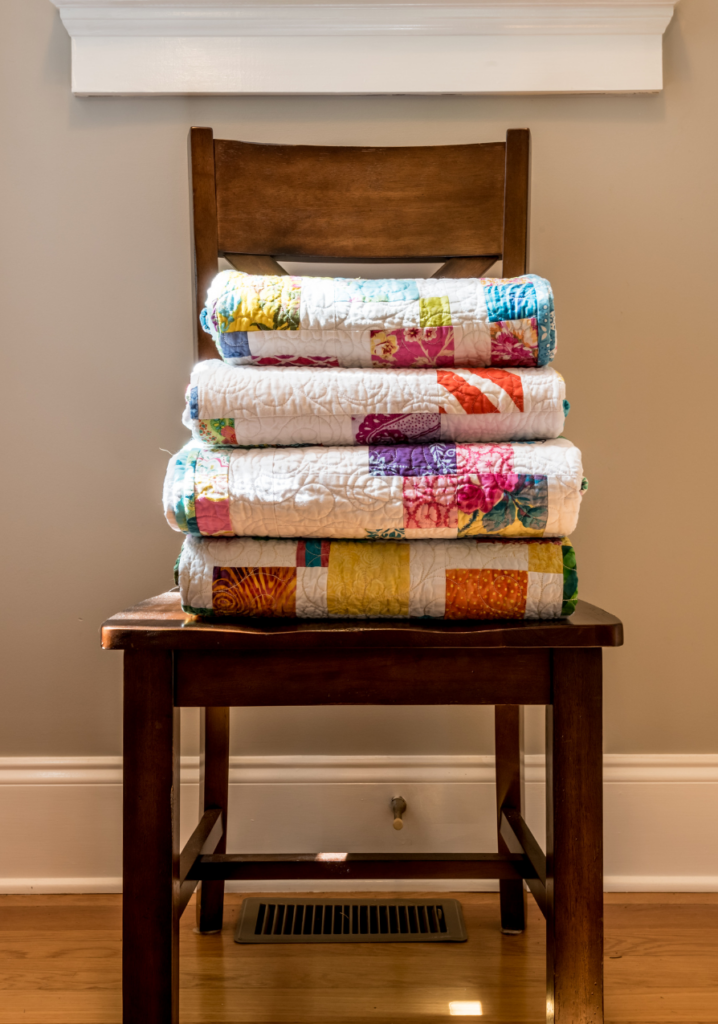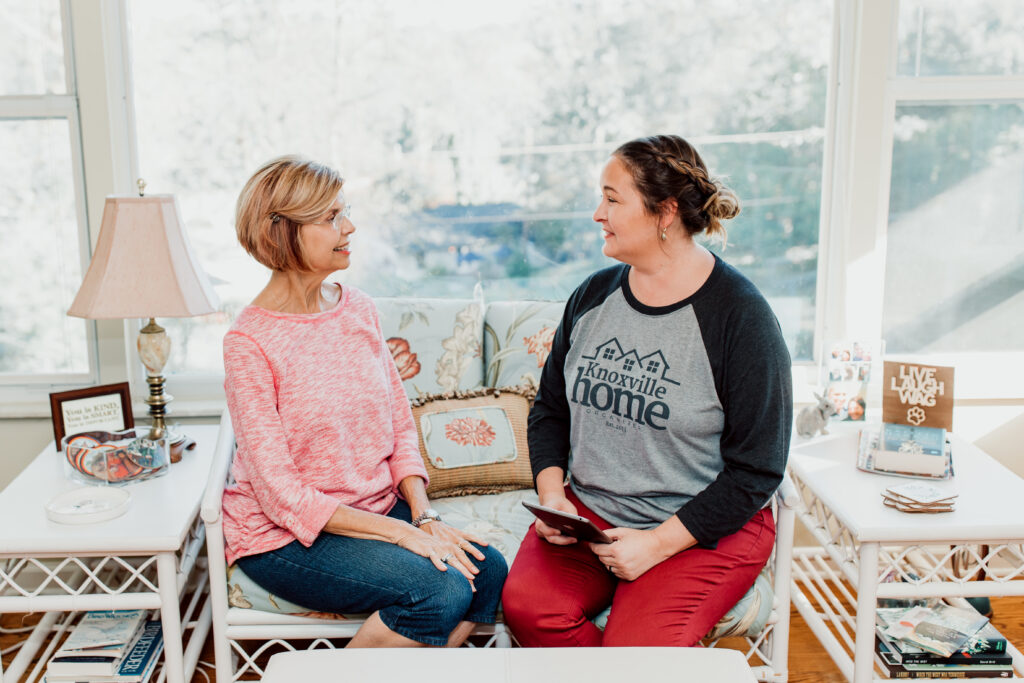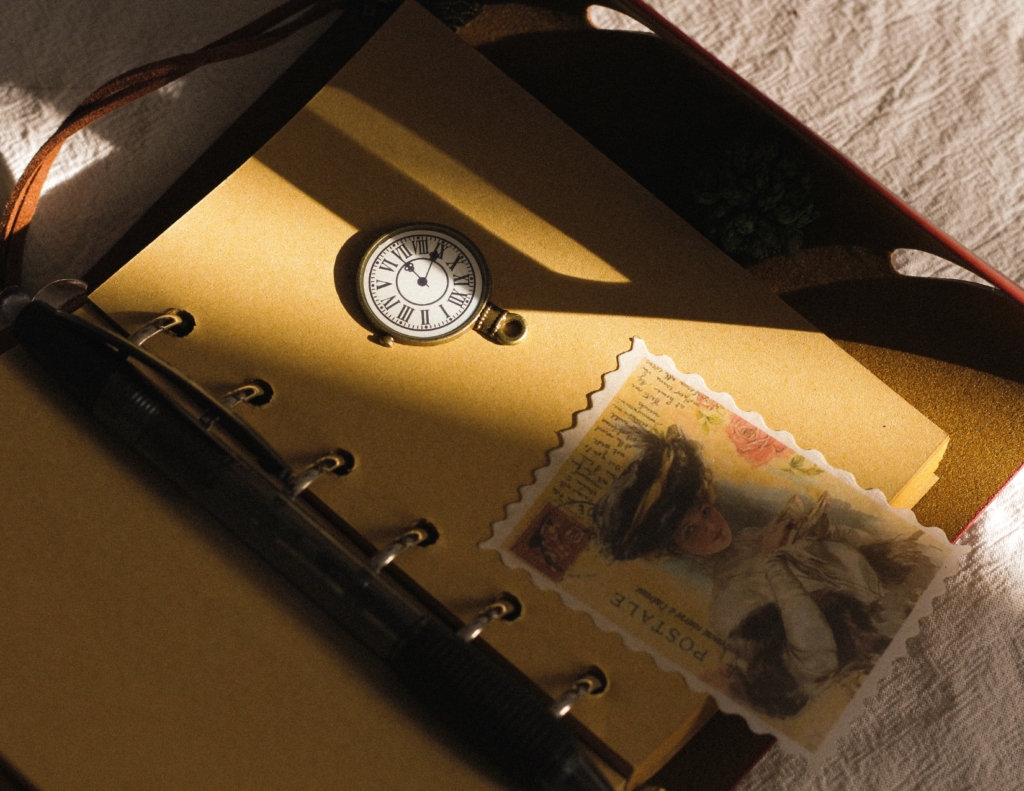
Imagine standing in your living room, surrounded by objects that tell the story of your life—wedding albums, gifts from loved ones, the teapot your grandmother used every Sunday. Now, imagine someone saying, “You don’t need all this. Let’s clear it out.”
For many aging adults, decluttering feels less like tidying up and more like dismantling the chapters of their life story.
If you’re an adult child helping your parents downsize or declutter, understanding their perspective is key to creating a collaborative and respectful process. Decluttering isn’t just physical work; it’s deeply emotional and often tied to their sense of identity, security, and independence.
Let’s explore what your parents may experience during this process and how you can offer support while respecting their journey.
Why Decluttering Feels Different for Your Parents
1. Every Item Tells a Story
For your aging parents, a simple object may represent decades of memories. The quilt draped over the armchair isn’t just fabric—it’s the warmth of your grandmother’s hands. A cabinet full of dishes may feel like an archive of family meals and traditions.

What you see as “stuff” might feel like pieces of their identity. Letting go isn’t just parting with an object; to them it’s deciding how much of their past they’re willing to release.
Tip for Adult Children:
Start conversations by asking, “What does this mean to you?” instead of “Do you still need this?” This small shift shows respect for their attachment and opens the door for meaningful dialogue.
2. Fear of Losing Independence
A cluttered home may signal to you that your parents need help. For them, though, it might symbolize autonomy. Letting go of possessions can feel like giving up control, especially if they’re already facing challenges like reduced mobility or needing more support in other areas.

Tip for Adult Children:
Frame the conversation around preserving their independence: “Decluttering can make it easier to move safely around your home, so you can stay here longer.”
3. The Weight of “What If” Thinking
Aging adults often wrestle with “what if” scenarios: What if I need this later? What if my children want this someday? Decades of resourcefulness and saving “just in case” make it hard to adopt a decluttering mindset.

Tip for Adult Children:
Reassure your parents by focusing on the present: “If you need it later, we’ll find a solution, but let’s make your home safe and comfortable for today.”
4. Overwhelm and Decision Fatigue
A house full of belongings accumulated over 40+ years can be daunting to sort through. Decluttering requires hundreds if not thousands of decisions, which can lead to frustration, procrastination, or shutting down.

Tip for Adult Children:
Break tasks into smaller, manageable chunks. Instead of tackling an entire room, focus on one shelf or one box at a time. Celebrate small victories along the way.
When Family Ties Complicate Decluttering
For many families, emotions run high when adult children step in to help aging parents declutter. While your intention may be to help, your parents may perceive your involvement as judgmental or intrusive. This is especially true if sibling dynamics come into play.
Consider whether you are the best person to help. A sibling who lives closer or has a gentler communication style might be more effective. Alternatively, hiring a professional organizer who specializes in working with aging adults can provide an objective, compassionate perspective helping to leave the family relationship in good standing.

How a Neutral Party Can Help
A professional organizer who specializes in aging-in-place will:
- Approach your parents without the emotional baggage family dynamics often bring.
- Help your parents feel heard and respected during decision-making.
- Offer practical solutions tailored to their needs and space.

I’ve worked with many families over the years who admitted they needed a third-party to ensure the downsizing process was successful. The adult daughter of a recent client offered this feedback:
Allison and her team displayed a great blend of expertise and empathy to the downsizing process. They understood the emotional weight attached to possessions and memories, making the sorting process collaborative and respectful. They helped my mom not just declutter, but truly curate a new space that reflected her paper crafting needs and new, mobility-challenged lifestyle. Tara H., Knoxville, Tennessee
Bringing in an outsider isn’t about stepping back; it’s about stepping up to provide your parents with the best support possible.
The Meet-in-the-Middle Approach for Decluttering
Finding common ground is essential when you and your parents see decluttering differently. Here’s a balanced approach to keep everyone on the same team:
1. Set Clear Goals Together
Before sorting a single item, sit down with your parents to define the “why” behind decluttering. Is the goal to age in place longer so the aging parent doesn’t have to leave their home? Prepare for a move? Free up space for new memories?

When goals are mutual, the process feels collaborative rather than imposed. And when your parent is committed to a shared goal, he or she is much more likely to be a willing participant in the process.
2. Focus on Function, Not Just Aesthetics
Instead of emphasizing minimalism or appearances, talk about how decluttering can improve their day-to-day life. For example:
- “Clearing this hallway will make it easier to use your walker.”
- “Organizing the kitchen can save energy when cooking meals.”

3. Compromise on Keepsakes
Not everything has to go. Identify a few key items that hold the most sentimental value and find meaningful ways to preserve them—such as creating a memory box or taking photos of large items before letting them go. In a previous blog post, we discuss how to handle sentimentality while still honoring the memories of our loved ones.

4. Create a Legacy Plan
If your parents are holding onto items for future generations, have a candid conversation about what you or other family members truly want to keep. This prevents them from holding onto items based on assumptions. Consider which items could be gifted now, allowing your parent to experience the joy of passing along an heirloom while they’re present to enjoy the moment.

A Grace-Filled Process
Decluttering with your parents is as much about emotional connection as it is about physical organization. Scripture reminds us of the importance of honoring our parents:
“Honor your father and your mother, so that you may live long in the land the Lord your God is giving you.” —Exodus 20:12

Approaching the process with patience, kindness, and respect reflects this commandment. Your role isn’t just to help clear their home; it’s to walk with them through a season of change, honoring their life while making space for the next chapter.
Let Us Help
At Knoxville Home Organizer, we understand the unique challenges aging adults and their families face during transitions. Our heart-centered home organization approach prioritizes safety, independence, and the emotional journey of letting go. Whether you need full-service decluttering or just a guiding hand, we’re here to make the process easier for everyone. Schedule a free phone call today to get started!
In your corner,

Allison and the KHO Team
Additional Resources on This Topic:
- Heartfelt Holiday Conversations: An Aging Parent’s Perspective
- Grappling with Sentimentality: Finding Peace in Letting Go
If this post content has been helpful to you and you know someone else who would benefit from this content, would you please share it using the options below? Sharing is such a simple way to spread a little encouragement!
